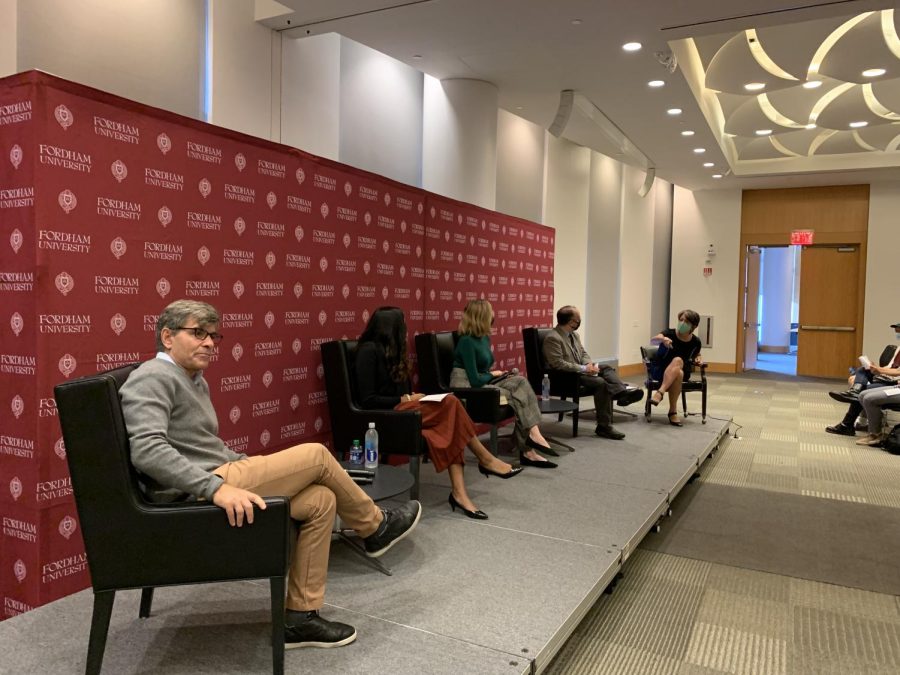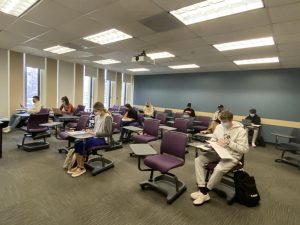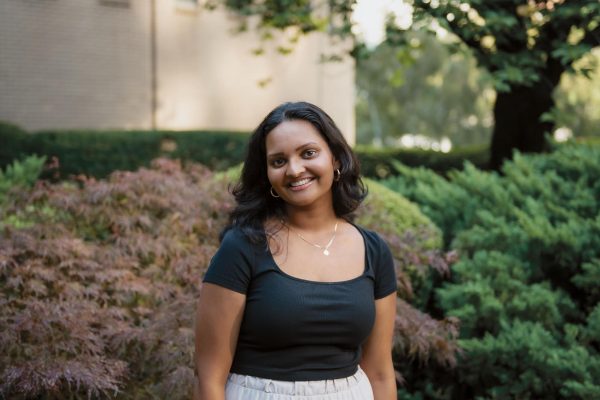Fordham Panelists Discuss Navigating Political Discourse in a Polarized Age
Political science professor Monika McDermott leads a discussion on the causes, effects and solutions of political polarization
Fordham hosted the first in a series of events on questions about free speech and polarization in the world of social media.
October 23, 2021
Fordham University hosted a panel on political discourse in a polarized age on Oct. 7, featuring George Stephanopoulos from ABC News; Kristen Soltis Anderson, a founding partner at Echelon Insights; Roshni Nedungadi, a founding partner at HIT Strategies; and Robert B. Talisse, a professor of philosophy at Vanderbilt University.
Monika McDermott, a professor of political science at Fordham, facilitated the discussion during the panel, which was both held in person and livestreamed.
The panel was the first of Fordham’s 2021-22 Speech Acts Series, a collection of discussions focusing on questions relating to free speech, political polarization and the place of truth in the age of social media. There were 413 registrants for the event, including faculty, staff, students and alumni.
McDermott provided a brief description of how the panel was curated, mentioning how the organizers searched for those able to deliver both practical and philosophical insights into political polarization.
“We were lucky to get Stephanopoulos and Talisse to agree to participate as they are true experts in those fields respectively,” she said. “We also wanted public opinion experts, so we went for millennial experts (to appeal to Fordham students) on either side of the partisan divide.”
The panel opened with Talisse, who defined political polarization as “a measure of the doctrinal or ideological distance between two political units, and a measure of the ideological distance between two parties, in which the common ground drops out and there are stalemates, frustrations, distrust and resentments.”
“We believe democracy can flourish only when everyone is on my side, which is profoundly anti-democratic.” Robert B. Talisse, professor at Vanderbilt University
He also touched on belief polarization, a phenomenon impacting a like-minded group in which more radical versions of beliefs are expressed with more confidence.
“As we shift into more extreme views with our allies, our views towards them also shift; we see them as dangerous, ignorant and in need of diagnosis,” Talisse said. “We become more invested in the likeness of those who we see as members of our group; when the group becomes more alike, we become more interested in fixing the border between in-group and out-group.”
Talisse referred to Liz Cheney’s ousting from the Republican party as an example of how belief polarization leads members of a party to become invested in punishing those whom they view as disloyal and expressing more negative and punitive views toward them than the opposing party.
“Partisanship becomes a lifestyle: Where you do your grocery shopping, what car you drive, and how many maps you own are all political choices,” Talisse said. “We believe democracy can flourish only when everyone is on my side, which is profoundly anti-democratic, and only benefits political parties and candidates.”
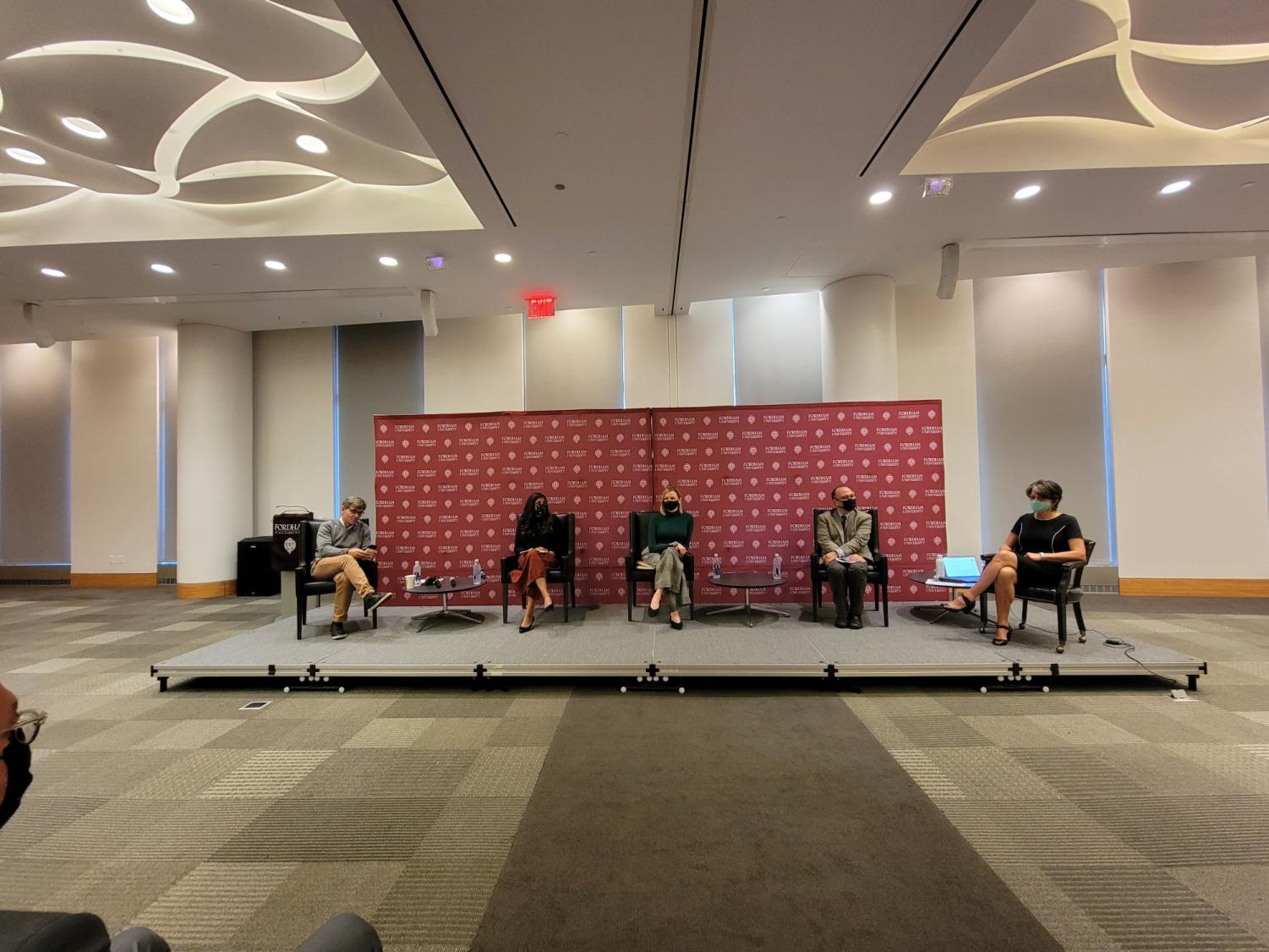
Soltis Anderson, a political pollster and author, emphasized citizens’ concerns about their survival, specifically their belief that the other side winning would be damaging to the U.S.
“There is this belief that the other side is not just out to get you but that they have the tools to get you. How do you signal to the other side that you are not trying to harm them? We as a country should try to listen,” Anderson said.
Nedungadi, a pollster who runs focus groups with young people, commented that political polarization among younger generations is declining because they are less likely to strongly identify with a major party. She attributes this decrease in political identification to a lack of generational representation in Congress and other electoral positions.
“It may seem like younger generations are loud and angry, but it’s because they are underrepresented; they believe that protesting and direct action are more effective than voting,” Nedungadi said.
“In current presidential and congressional campaigns, the goal is to mobilize the voters who already agree with you.” George Stephanopoulos, Good Morning America anchor
A solution she believes in is electing politicians who can explain the provisions and policies they want to implement, while also factoring in the increasingly diverse populations that assign greater importance to racial and social issues.
Stephanopoulos, a co-anchor at Good Morning America and former senior adviser to the president for policy and strategy during the Clinton administration, recounted the contrast between the political climate while campaigning in 1992 and today.
“Clinton ran against the party from within the party; a big part of it was about persuading Republicans and Independents to vote for him,” he said. “In current presidential and congressional campaigns, the goal is to mobilize the voters who already agree with you. The effort to reach out and persuade the other side to vote for you is ineffective.”
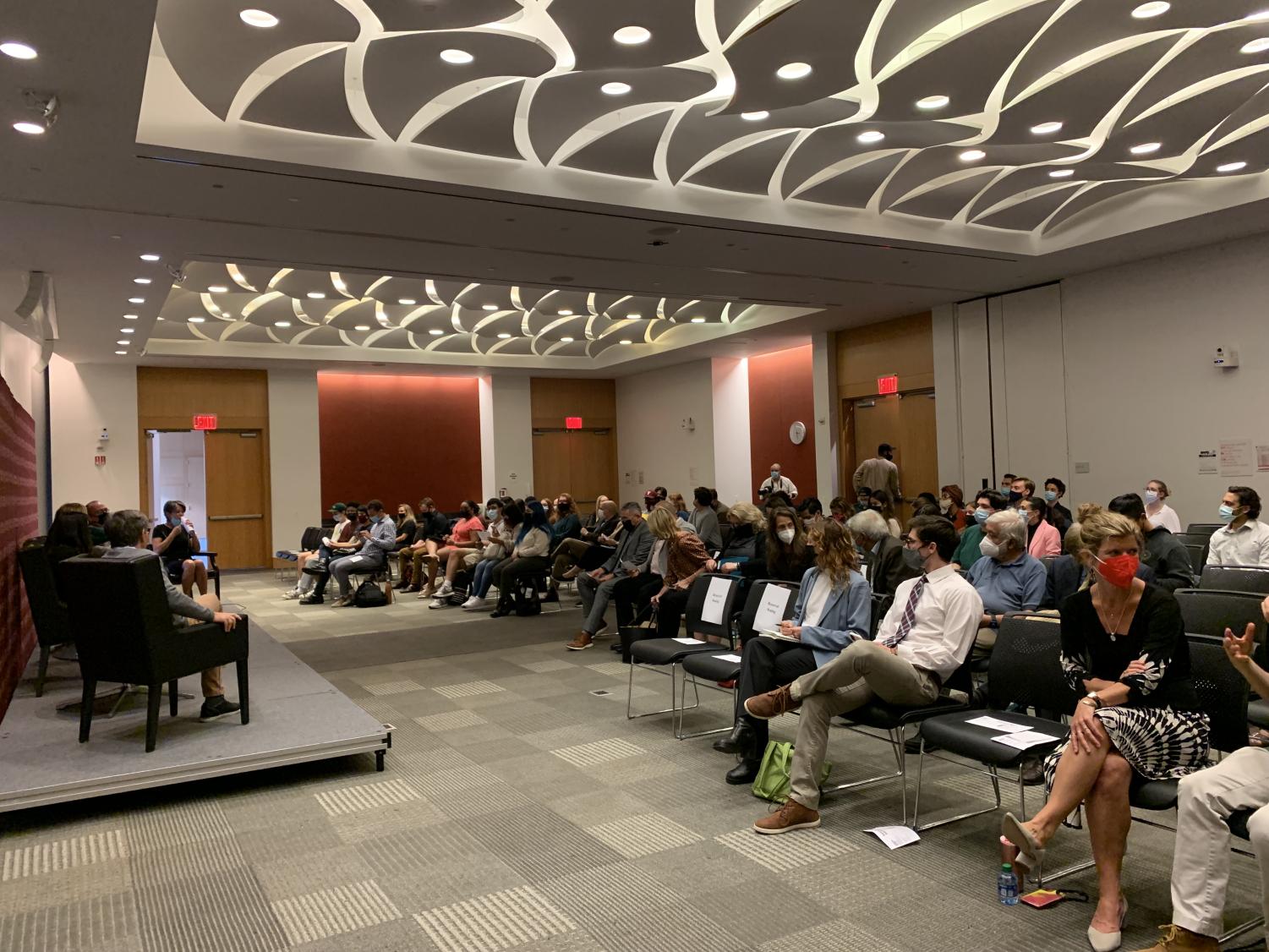
He also spoke about the presence of feedback loops, in which individuals receive their news from one site or channel that circulates the same information from politicians of similar alignments.
“We cannot even come to an agreement on a common set of facts to have a conversation; lies take hold in a profound way. Even in a debate, we no longer feel the need to appeal to the other side,” Stephanopoulos said.
In regards to combating polarization, Nedungadi suggested leading with information.
“It’s tough because everyone sees their information as truthful and factual these days, but the more that we can get accurate, truthful information out there into the public and have people thinking about it and understanding it, the better off we’ll be in terms of having a foundation for those conversations,” she said.
“It was a conversation that was long overdue.” Jaylon Abad-Zaragoza, FCLC ’22
Adding to that, Talisse recommended engaging in activities aside from politics to combat polarization.
“Politics is supposed to be an instrument for something; politics cannot be everything because it has to be in the service of something else, and that needs to be reaffirmed right now,” he said.
Jaylon Abad-Zaragoza, Fordham College at Lincoln Center ’22, attended the panel in person. He expressed his appreciation for the discussion, which he viewed as necessary and topical.
“I thought that it was a very necessary conversation to have today, especially after the last four or five years. We’ve had this dilemma that has been growing on us and, up until recently, it’s been something that we willingly and unwillingly choose to ignore,” he said. “It was a conversation that was long overdue.”

